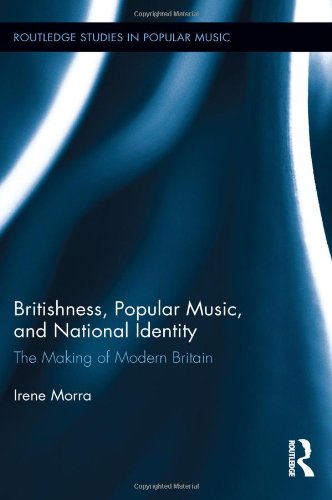

Most ebook files are in PDF format, so you can easily read them using various software such as Foxit Reader or directly on the Google Chrome browser.
Some ebook files are released by publishers in other formats such as .awz, .mobi, .epub, .fb2, etc. You may need to install specific software to read these formats on mobile/PC, such as Calibre.
Please read the tutorial at this link: https://ebookbell.com/faq
We offer FREE conversion to the popular formats you request; however, this may take some time. Therefore, right after payment, please email us, and we will try to provide the service as quickly as possible.
For some exceptional file formats or broken links (if any), please refrain from opening any disputes. Instead, email us first, and we will try to assist within a maximum of 6 hours.
EbookBell Team

5.0
30 reviewsThis book offers a major exploration of the social and cultural importance of popular music to contemporary celebrations of Britishness. Rather than providing a history of popular music or an itemization of indigenous musical qualities, it exposes the influential cultural and nationalist rhetoric around popular music and the dissemination of that rhetoric in various forms. Since the 1960s, popular music has surpassed literature to become the dominant signifier of modern British culture and identity. This position has been enforced in popular culture, literature, news and music media, political rhetoric -- and in much popular music itself, which has become increasingly self-conscious about the expectation that music both articulate and manifest the inherent values and identity of the modern nation. This study examines the implications of such practices and the various social and cultural values they construct and enforce. It identifies two dominant, conflicting constructions around popular music: music as the voice of an indigenous English ‘folk’, and music as the voice of a re-emergent British Empire. These constructions are not only contradictory but also exclusive, prescribing a social and musical identity for the nation that ignores its greater creative, national, and cultural diversity. This book is the first to offer a comprehensive critique of an extremely powerful discourse in England that today informs dominant formulations of English and British national identity, history, and culture.